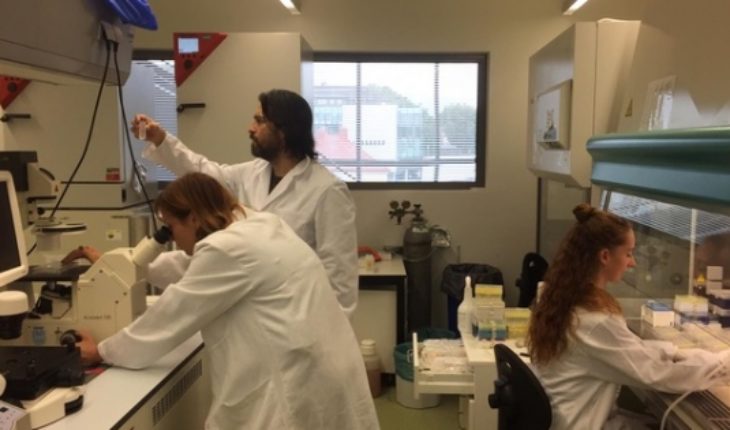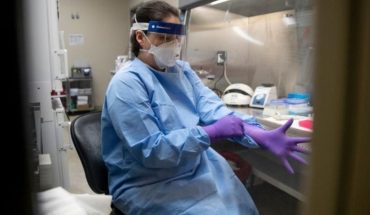Multiple sclerosis (MS) is a chronic autoimmune disease that affects the brain and spinal cord of young people, under the age of 40, and among them, is more common in women. It is estimated that in Chile the prevalence is 12 people with MS per hundred thousand inhabitants, with the city of Punta Arenas having the highest prevalence nationally.
Neurons in people who have MS lose the fat cover that protects the axon, so electrical transmission between them becomes difficult by affecting the entire central nervous system. To date, there is no effective treatment that can cure this disease. But among researchers is generating anticipation an experimental stem cell therapy.
“This is a therapeutic strategy that is still in development, as clinical testing is underway. However, the results should be made public this year or at the latest next. Only then will we have an idea of the effectiveness of the treatment”, says Francisco Rivera, academic of the Faculty of Medicine of the Universidad Austral de Chile and member of the Nucleus Research Center of Nervous System Studies (CISNe) of this same Institution.
He and María Elena Silva, an academic at the Faculty of Sciences of the U. Austral, and also a member of CISNe, have researched this disease since 2011 and recently discovered a key aspect that is directly related to the great promise of treatment of stem cells.
The age factor
Precisely, the studies of Dr. Rivera and Dr. Silva together with their research team and international collaborators have shown that, in addition to having an ability to reduce the autoimmune reaction, mesenchymatic stem cell transplantation promotes the generation of new oligodendrocytes in response to damage to myelin. However, aging limits this.
It is for all of the above that “since 2012 clinical trials are being conducted transplanting mesenchymatic stem cells from bone marrow to patients with multiple sclerosis. The process is performed by removing the cells from the bone marrow, which are purified, expanded and then transplanted back to the same patient. This is where our research is vitally important, as we have found that the age of patients could influence the outcome of treatment,” Dr. Rivera said.
According to the calculations that were performed, the average or advanced age that may represent a limit is around 50 years. “That’s something we discussed in our published work. Now, the patients selected for the clinical studies being carried out in the world, are between the ages of 18 and 50. Therefore, once the results of these studies have been obtained in patients with multiple sclerosis it would be of great interest to verify whether the efficacy of the treatment correlates with the different age groups,” he adds.
Stem cells
According to Rivera, many times, when we talk about stem cells in the therapeutic context we refer to cells capable of specializing and generating other types of cells. “So once transplanted into a patient who has lost some of a tissue, these cells could themselves regenerate the damaged tissue. While it is true that mesenchymatic stem cells have all the characteristics of a stem cell, they also have other properties that make them very interesting. Somehow, all the cells in our organism have the ability to communicate with each other… ‘talk’, ‘conversation’ and in that respect the mesenchymatic stem cells are ‘very conversational’. They release signals that other neighboring cells (and some not as neighboring cells) perceive by reacting according to the instructions that deliver those signals. So mesenchymatic stem cells can ‘shape’ a ‘sick’ cellular environment and make it less harmful to the body or even ‘regenerative’,” he says.
It is precisely because of this property that its therapeutic use in case of multiple sclerosis is sought. “The signals released by transplanted cells are capable, on the one hand, of ‘appeasing’ the destruction of myelin and, on the other hand, of ‘helping’ other cells to do their job more easily, which is, regenerating myelin. Apparently, it is this ‘signaling’ ability that is diminished (as if the stem cells lost the ability to ‘converse’ with neighboring cells) with the advancement of age and could therefore affect their therapeutic capacity,” he explains.
In addition to age, some studies claim that mesenchymatic stem cells obtained from MS patients have deficiencies when compared to cells obtained from healthy patients. “All of the above suggests that autologous transplantation has its limitations and may need to consider alternatives,” Rivera suggests.
translated from Spanish: Researchers warn limitations of experimental stem cell therapy in Multiple Sclerosis
August 5, 2019 |





